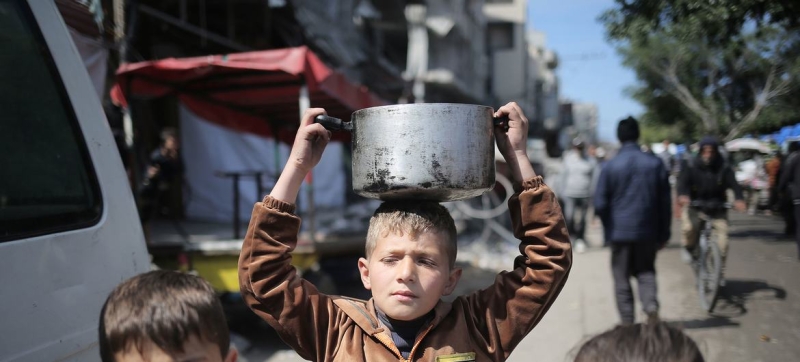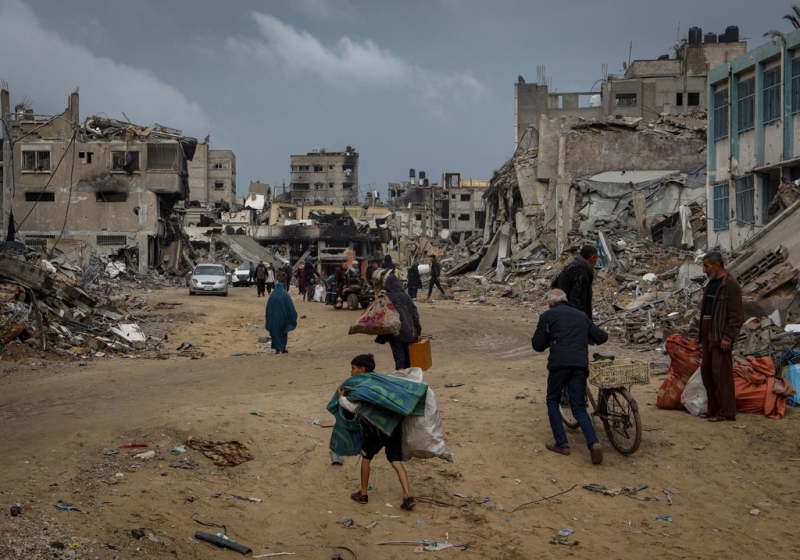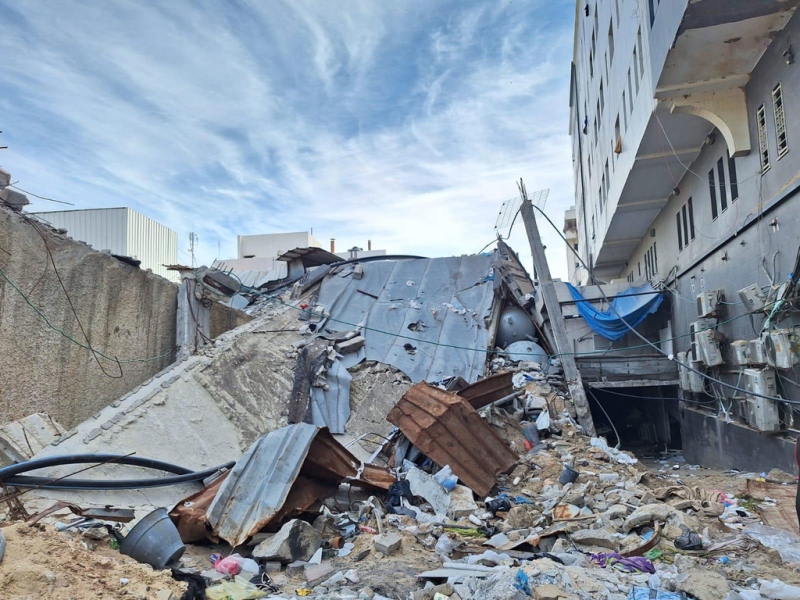
Children in Rafah in the southern Gaza Strip. Mass famine in northern Gaza: Israel continues to restrict humanitarian aid Peace and Security
Despite recent demands from the International Court of Justice and the Security Council, Israeli forces are blocking humanitarian supplies to the northern Gaza Strip, where the population is starving.
More than a dozen Palestinians have died in air aid operations carried out by several countries as an alternative to overland deliveries that have been plagued by serious delays at border crossings, media reports said. Some Palestinians are reported to have drowned while trying to retrieve dumped food containers from the sea.
The UN calls for an immediate ceasefire in Gaza and compliance with the Security Council resolution on the suspension of hostilities during Ramadan and the rulings of the International Court of Justice. Last Thursday, the Court ordered Israel to take all necessary measures to ensure the unhindered delivery of humanitarian aid to Gaza. Aid should include food, water, electricity, fuel, clothing, hygiene items and medicine. The new ICJ ruling also orders Israel to increase the capacity and number of ground checkpoints.
Read also:
The UN Security Council adopted a resolution demanding a ceasefire in Gaza during the month of Ramadan
Bombings continue
According to the latest information from the United Nations Relief Agency for Palestine Refugees in the Near East (UNRWA), Israeli Security Forces continue military operations throughout the Gaza Strip, resulting in further civilian casualties, displacement of civilians and destruction of homes and civilian infrastructure.
Israeli operations in Gaza that began in October following the Hamas attack on Israel have killed more than 32,000 people in Gaza, according to the enclave’s health authorities.
Bombing continued in Khan Younis and Rafah in northern Gaza, where UNRWA estimates there are currently 1.2 million people living, the vast majority of them in shelters and makeshift shelters, the UN agency said.

Khan Yunis, southern Gaza.
More than 100 UNRWA schools were directly or indirectly affected, some severely damaged. Many of them have been used as housing for displaced families since the beginning of the war.
Access to humanitarian aid difficult
Opportunities humanitarian efforts in Gaza remain severely limited, UNRWA said.
An average of 159 aid trucks per day entered Gaza between March 1 and March 30, according to the UN agency. Before the war, about 700 trucks entered the strip every day.
The UN World Food Program (WFP) is providing essential food to 1.45 million people in Gaza, but it is not enough.
“Without a ceasefire and without full humanitarian access, people’s lives are at risk,” the WFP said.
Obstacles to UNRWA
According to the UN Office for the Coordination of Humanitarian Affairs (OCHA), since March 1, Israeli authorities have rejected 30 percent of aid missions in the northern Gaza Strip.
In particular, Israeli authorities continue to deny UNRWA access to the northern part of the enclave to distribute food aid. Last week, the Israeli leadership announced that it would no longer approve such supplies. Assembly.
“Attempts to dislodge UNRWA must stop,” he said. – The agency is responsible for all humanitarian activities in Gaza. Any attempts to distribute aid without it are doomed to failure.”
Hospitals must be protected
World Health Organization (WHO) chief Tedros Adhanom Ghebreyesus said over the weekend that at least four people were killed and 17 injured in a hospital strike Al-Aqsa in the central part of the Gaza Strip.

Destroyed Al-Shifa Hospital in northern Gaza.
“The WHO team was on a humanitarian mission at Al-Aqsa Hospital in Gaza when an Israeli airstrike hit a tent camp on the hospital grounds on Sunday,” Tedros wrote on social media.
“We once again call for the protection of patients, medical staff and humanitarian operations,” the WHO chief said. Hospitals should not become battlefields, he added.
Tedros also called for an immediate cessation of hostilities and spoke out against the Israeli siege of Al-Shifa hospital in the north of the sector. According to media reports, civilians were killed and injured as a result of a two-week military operation there.
